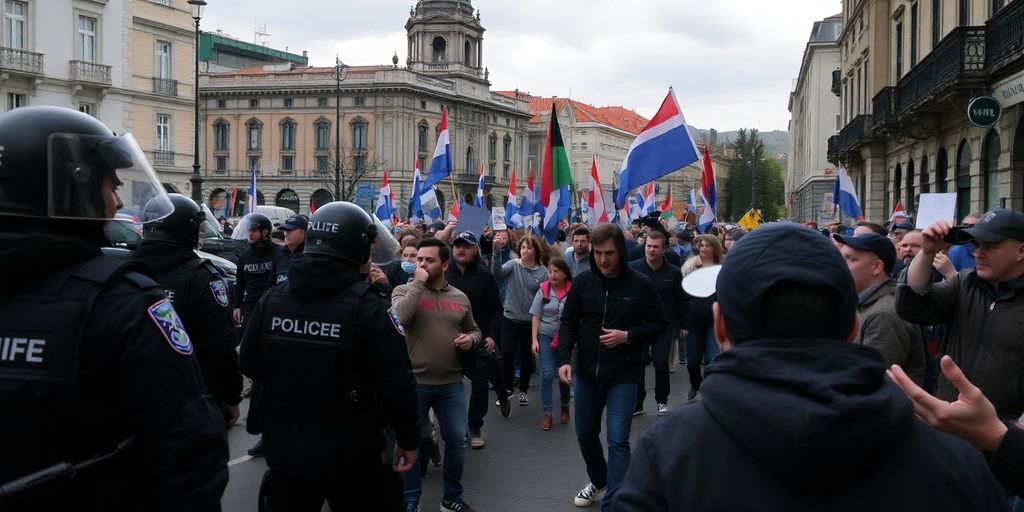The political landscape in Bosnia and Herzegovina is in turmoil as Milorad Dodik, the leader of the Bosnian Serb entity Republika Srpska, faces an international arrest warrant. This escalation follows his defiance of constitutional rulings and increasing tensions with both local and international authorities.
Key Takeaways
- Milorad Dodik is under a nationwide arrest warrant issued by Bosnia’s state court.
- The warrant is part of a broader political crisis involving accusations of undermining the constitutional order.
- Dodik’s actions have led to international sanctions and diplomatic tensions, particularly with Germany and Austria.
Background of the Crisis
The political crisis in Bosnia has been brewing for some time, primarily due to Dodik’s controversial stance on the autonomy of Republika Srpska. Following a court ruling that sentenced him to one year in prison for defying the decisions of Bosnia’s international peace overseer, Dodik has intensified his rhetoric against the central government.
In February 2025, the Bosnian state court issued a nationwide arrest warrant for Dodik, along with two of his associates, Nenad Stevandic and Radovan Viskovic. They are accused of an “attack on the constitutional order” of Bosnia and Herzegovina. This legal action came after they failed to respond to multiple summonses for questioning by the state prosecution.
International Response
The international community has reacted strongly to Dodik’s actions. Recently, Germany and Austria imposed sanctions against him and his close aides, declaring them persona non grata. This move was met with defiance from Dodik, who has vowed to continue his push for greater autonomy for Republika Srpska, even threatening secession.
Dodik’s defiance has drawn criticism from various quarters, including the European Union and NATO, which have called for urgent action to address the escalating tensions in the region. The situation is seen as one of the most significant threats to peace in the Balkans since the conflicts of the 1990s.
Current Developments
As of now, Dodik is reportedly in Moscow, attending an international conference. His absence raises questions about the enforcement of the arrest warrant, especially as he continues to assert his authority in Republika Srpska. Meanwhile, his allies have fled to Serbia, further complicating the situation.
In a recent statement, Dodik announced plans to establish a border police force for Republika Srpska, which would control the borders between the two entities of Bosnia and Herzegovina. This move is seen as a direct challenge to the central government and a step towards further entrenching the division within the country.
Conclusion
The political crisis surrounding Milorad Dodik is a critical moment for Bosnia and Herzegovina, with potential implications for regional stability. As tensions rise, the international community watches closely, hoping for a resolution that upholds the constitutional order and prevents further conflict in the Balkans. The coming weeks will be crucial in determining the future of both Dodik and the fragile political landscape of Bosnia.
Sources
- Chair of GOP Israel branch owns firm registered as lobbyist for pro-Kremlin Bosnian entity — report, The Times of Israel.
- Bosnia Steps Up Efforts to Arrest Dodik with Nationwide Warrant, Balkan Insight.
- BWK: The Armed Afghan Gang Terrorising Migrants, Refugees Crossing Bosnia, Balkan Insight.
- Bosnian Serbs declares German minister persona non grata after sanctions | World News, Hindustan Times.
- How Dalmatia got its name and Croatia its border with Bosnia and Herzegovina, Croatia Week.


![A Nation Mourns: Thousands Bid Farewell to Folk Legend Halid Beslic Thousands mourn folk legend [Halid Beslic] at his funeral.](https://balkaneu.com/wp-content/uploads/2025/10/d4a6f2dfthumbnail-218x150.jpeg)



